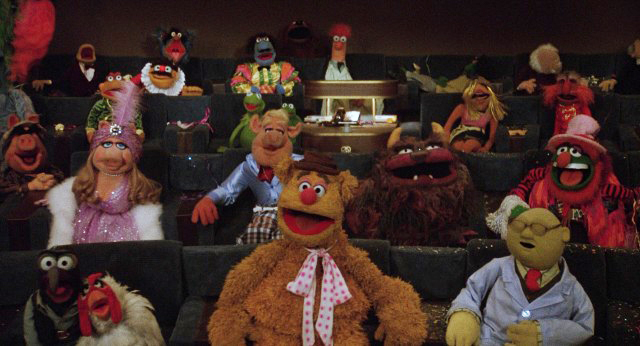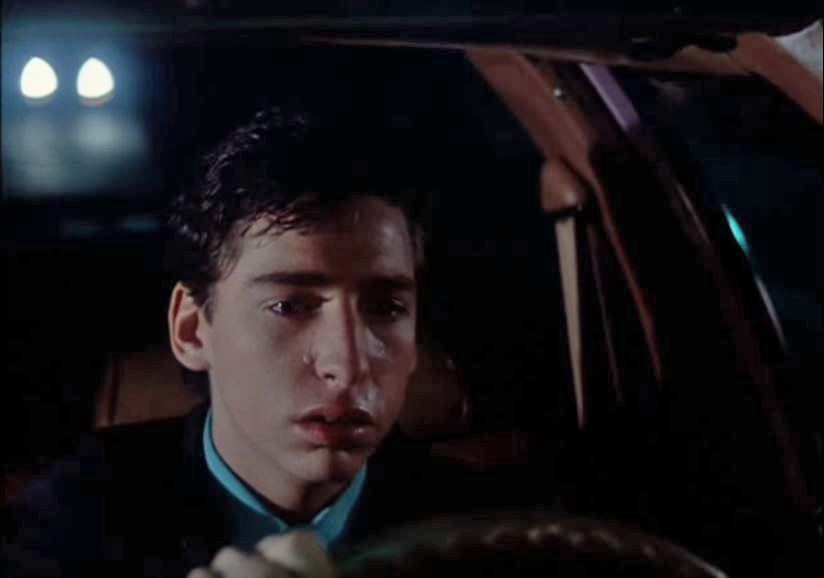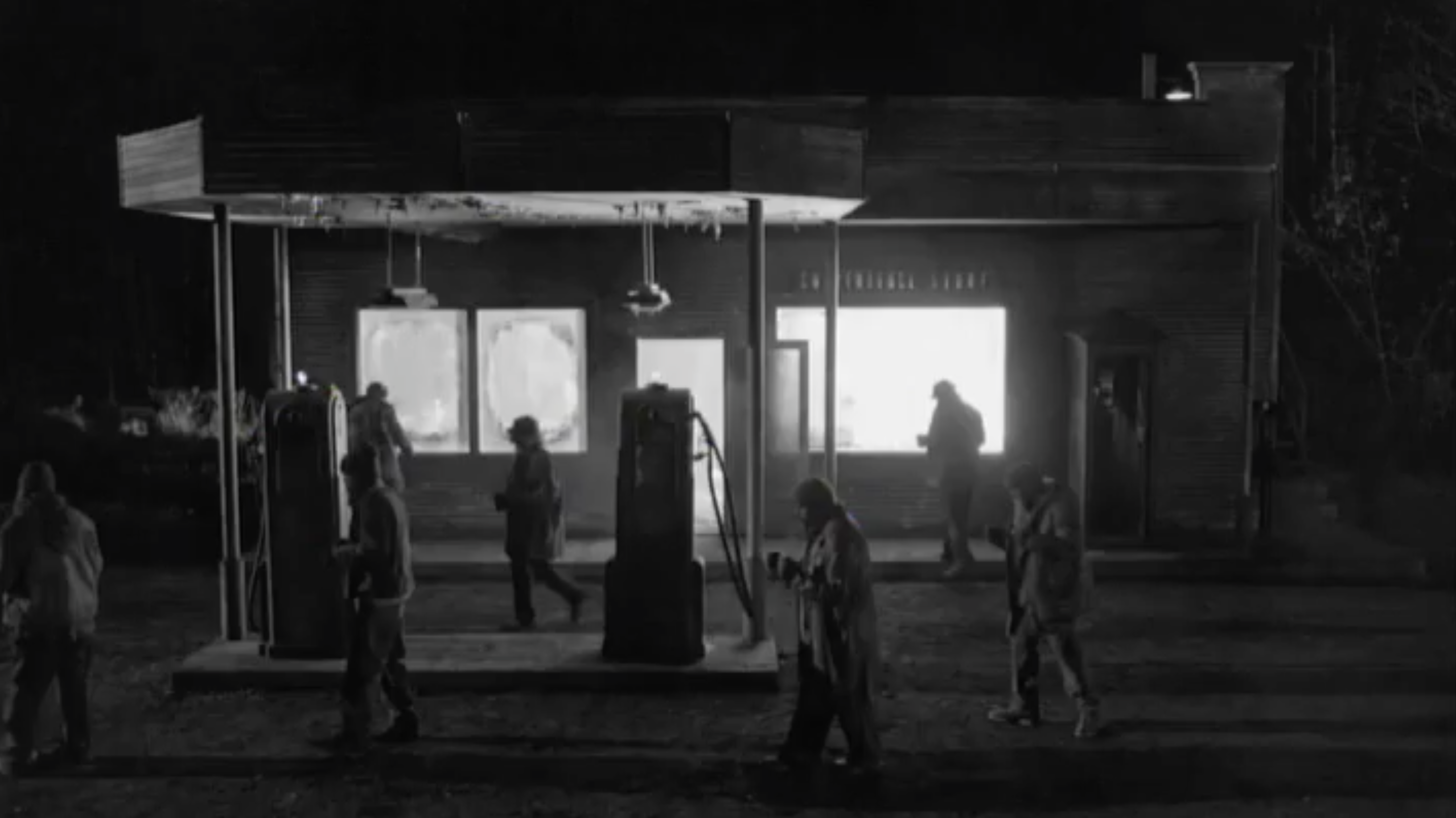
These guys are relying on you to do the right thing.
As writers, most of us work to create scripts with compelling stories, three-dimensional characters, and authentic-sounding dialogue. But what else should be on our checklist?
After all, screenplays – and the resulting movies, television, and web content – aren’t designed solely for the author to express themselves. They’re made for an audience. So what kind of responsibility do we have to them?
Do you owe them a satisfying resolution?* Do you owe them loose ends tied up?** Do you owe them a coherent through-line?***
Or should you be able to just follow your muse and let it take you wherever and however the hell it wants?
Obviously there’s no objectively right answer.
In most cases, professional writers are under the supervision of story editors, producers, and network executives. For them, it’s all about serving the audience (along with sponsors, and the bottom line, of course).
But what if you had the option to do anything that popped into your head? Maybe you’ve got a rich relative sponsoring your project. Maybe the rich one sponsoring your project is you. Do you have to worry about the audience then? Or – damn the torpedoes – should you just make your art without any restrictions whatsoever?

Wait, this isn’t the end, right? You can’t end it like this, right? Right?!
When I was a lot younger, my friends and I rented the movie, The Last American Virgin. In the age of Porky’s and Fast Times at Ridgemont High, it was promoted as a sexy comedic romp.
It was not.
Sure it started out as a wacky comedy. But in the end, the hero was dumped by the girl of his dreams (who he had helped out of a dire situation), who then hooked back up with the hero’s best friend (who was the one that had put her in the dire situation to begin with). The last image in the movie was was the kid just driving alone, devastated.
Madness.
Sure, that may be the way a Sundance indie drama ends, but not this. Not with a complete 180 in tone. This is an abuse of your viewers.
Speaking of madness, perhaps you’ve seen 2017’s Twin Peaks: the Return?

I don’t care how much of a craving you have for Twinkies, keep driving…
I was a big fan of the original series, though I felt that Fire Walk with Me was a big miss. Nevertheless, I was excited for the latest iteration. At least until I started watching it.
All indications are that David Lynch was allowed to do whatever he wanted with those 18 episodes. It showed.
While some super-fans might feel it was some brilliant expression of a mad genius, the rest of us were left dumbfounded at the relentless craziness that seemed to have no discernible rhyme or reason.
As a creator, you can get away with some quirky, crazy bits. That might be your “voice” as a writer that makes you stand out. But when it’s the majority of the narrative, and there’s no way for anyone else to clearly comprehend what the hell it means in the story (or even what the story is), then you’ve done something wrong.
I think it’s pretty clear that for me, writers need to care about their audience. Certainly if they want them to ever be their audience again.
No, you don’t need to rigidly create a happy ending. No, you don’t have to dumb things down, or mimic a classic paradigm.
Your story can make them think. It can make them work.
But it definitely shouldn’t leave them staring at the screen and thinking: WTF?
![[TEXTSMITH] BLOG](https://blog.jameshereth.com/wp-content/uploads/2016/07/cropped-cropped-BulbsPlus.jpg)
Well thought out an very poignant as I watch a lot of independent movies these days. Most seem to be self-servicing the filmmaker. They tend to end on WTH? kinda feeling. Not even at the end, but throughout the film. It seems to be self-indulging. I’m mildly amused, but not really. At any discussion of the film, I overheard one tiny criticism.
“I think the ending made feel unsatisfied. Do they ever…”
Well, that’s not how life is.
“Do you like Marvel films?”
“um…yeah.”
“Well it ends during the credit.”
I thought to myself, Marvel ends their films before the credits. During the credits, they insert a teaser trailer to the next film. It’s not another ending like LOTR.
I hope our film has something emotionally satisfying to offer-hope, love, and a tug at the heartstrings.
Thank you, Richard. Yes, I’ve heard a lot of the “that’s not how life is” reasoning, but that rarely works for me. A movie isn’t real life. You can make a movie that resonates like real life, but still make it satisfying for an audience.
Dialogue – for example – needs to SOUND natural, but if you actually recorded “real life” conversation (which I had to for a writing class), you’d discover that it’s a convoluted mess. We also leave sleep and bathroom breaks out of most of our scripts. Clearly, movies aren’t real life.
I look forward to your film (myapocalypticthanksgiving.com), and I’m glad to hear that “emotionally satisfying” is an important aspect you’re striving for!
Pingback: [ETCETERA] Not All There | [TEXTSMITH] BLOG[TEXTSMITH] BLOG